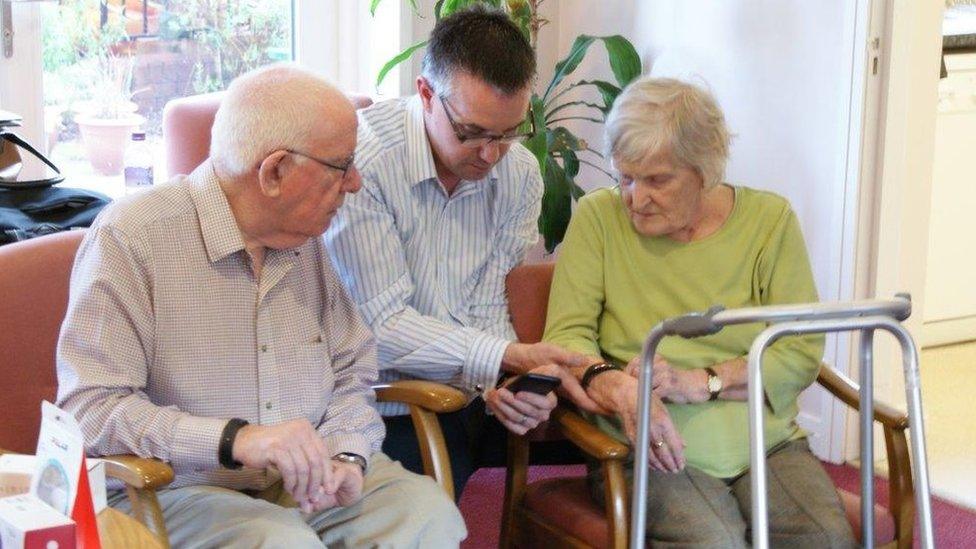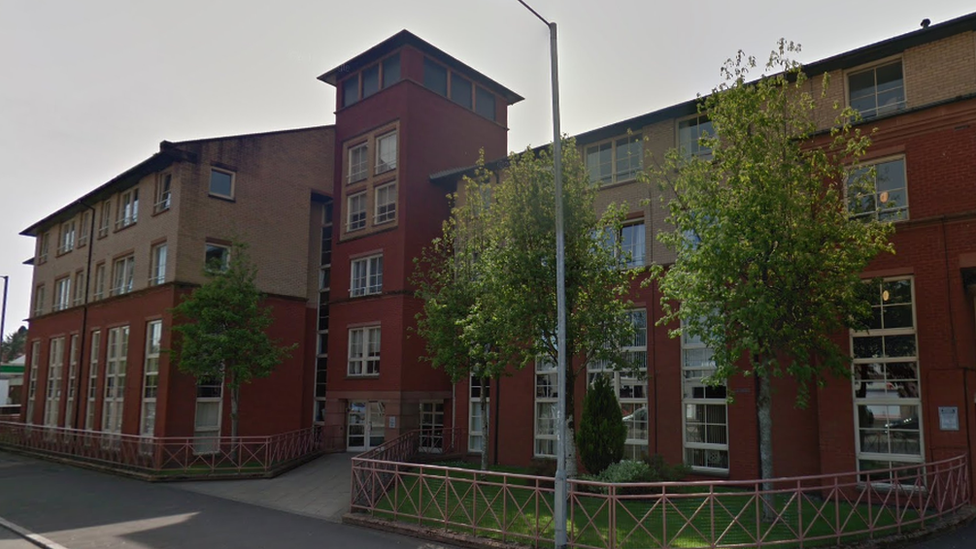Smart wristbands predict fall risk in Dumfries and Galloway homes
- Published

The smart wristbands monitor the wearer's health 24 hours a day
A social landlord in southern Scotland is using new technology to try to predict the potential risk of falling for residents of its sheltered housing.
The smart waterproof wristband monitors the wearer's vital health signs 24 hours a day.
Loreburn Housing Association hopes it can help prevent falls and reduce costs to the NHS.
It said the technology could allow people to live independently in their own home for longer.
The Dumfries and Galloway organisation said it was the first social landlord in the country to use the wristbands after a successful pilot.
Known as Armed (Advanced Risk Modelling for Early Detection), the system was developed by care management technology company CM2000.
The wearable device detects early indicators of frailty, such as low grip strength, muscle mass, hydration levels, low heart rate and heart rate variability.
Predictive analytics modelling - developed in partnership with Edinburgh Napier University - then uses data to predict the risk of a potential fall and allow intervention.

Loreburn Housing Association is offering the technology to residents of its sheltered housing
Loreburn is now starting to distribute the technology to people in sheltered accommodation.
Head of partnerships Moira Charters said: "Armed has huge and exciting potential to enhance the health, wellbeing and independence of our customers and we are delighted to be the first Scottish housing association to make this commitment to the prevention of falls.
"Loreburn's collaborative and partnership approach to working supports our strategic vision of creating great places to live, and allows us to support our customers to live independently and safely in their own homes for longer."
She said it could also help people avoid hospital admissions and reduce costs to the health and social care system.
Brian Brown, CM2000's director of Scotland, said it made sense to invest in preventative technology with an ageing population.
He said Loreburn had shown an "unprecedented commitment to reducing risks and improving quality of life for residents" by using the technology.
Adrian Smales, a research fellow at Edinburgh Napier University, added: "By collecting and analysing this data which will detect early signs of frailty, we hope this will lead to much improved outcomes for Loreburn Housing Association's sheltered housing residents."
John Bury, who lives at Loreburn's Nithsdale Mills in Dumfries, said the technology was "desperately needed".'
"My wife has dementia and this technology could help keep us living together for longer, and also give our family reassurance," he said.